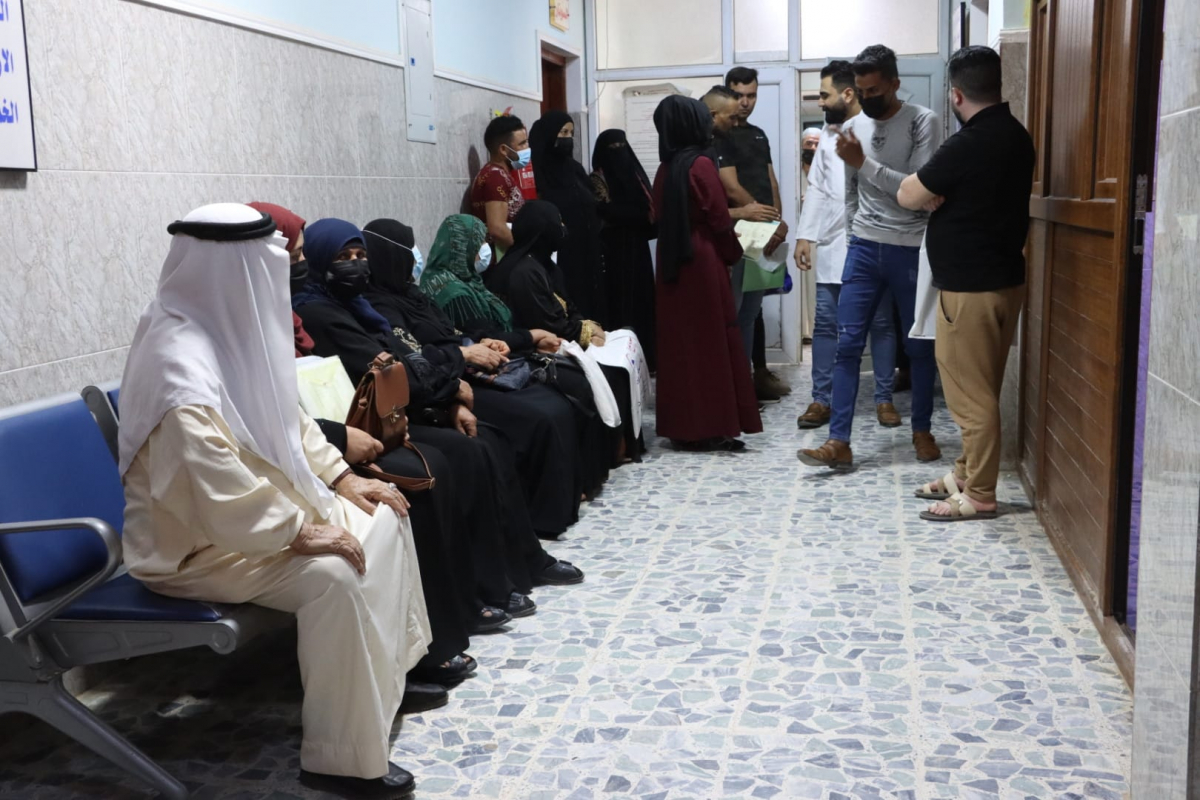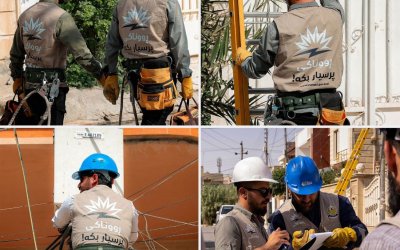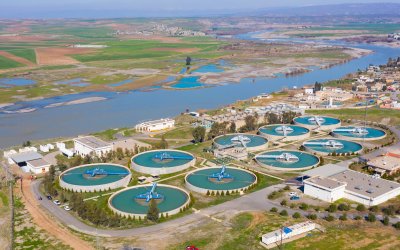
A group of patients waiting in line at the Anbar Specialized Center for Oncology. July 19, 2022 (Copyright: Anbar Cancer Center, Facebook Page)
The Institute of Regional and International Studies (IRIS) at the American University of Iraq, Sulaimani (AUIS) continues to make headway in supporting research related to the enduring impacts of war on health and medical care in Iraq. In an article published in Frontiers in Oncology, the third most cited oncology journal in the world, IRIS Executive Director Dr. Mac Skelton has joined with a team of Iraqi oncologists to document the enduring impacts of conflict on cancer care. The paper evaluates the status of government-run cancer services at the local level in the 5 provinces that were previously fully or partially occupied by ISIS (Anbar, Kirkurk, Nineveh, Salah al-din, Diyala). One striking finding is the unevenness of both conflict’s destructive impact and reconstruction’s benefits. For example, while the war with ISIS severely damaged cancer services in both Anbar and Nineveh provinces, Anbar province has witnessed a rapid reconstruction and expansion of oncology capacity during the five years since ISIS was militarily defeated, while Nineveh (Mosul) has witnessed a much slower rebuilding of cancer services. The co-authors analyze such divergences through a political economy lens, arguing that war has generated shifts in the local political dynamics of each province that shape the rebuilding of oncology services in locally specific ways.
As for policy implications, the research cautions against calls for privatization of medicine in Iraq as a quick fix for the problems of rebuilding government-administered public medical services, stressing that the “hope of most Iraqi oncologists is for the government and international organizations to support them in strengthening public oncology hospitals across the country’s 19 provinces, equipping these institutions with the capacity to provide comprehensive care during the current period of post-conflict recovery and relative stability, and in the face of whatever future wars may come.”
The study comes at a time when Iraq’s struggles with cancer have increasingly received visibility. In recent months, a number of highly circulated media reports have reminded the world about the longstanding concerns related to war-related environmental exposure and cancer incidence in Iraq, in addition to the toxins from gas flaring. As the study by Skelton and colleagues highlights, Iraqis are suffering not only from the hazards of environmental exposure on cancer incidence but also the war-induced destruction of cancer care and the unevenness of oncology reconstruction. Cancer care has suffered through successive iterations of conflict – including the 1991 Gulf War, the US-led invasion and occupation (2003-2011), and the more recent ISIS conflict (2014-2017). Understanding the impact of war on cancer care is, as the authors note, “intended to benefit the next generation of cancer care practitioners in the Middle East and other conflict-affected regions in their efforts to adapt to conflict and rebuild from the legacies of war.”
Read the full article here.





